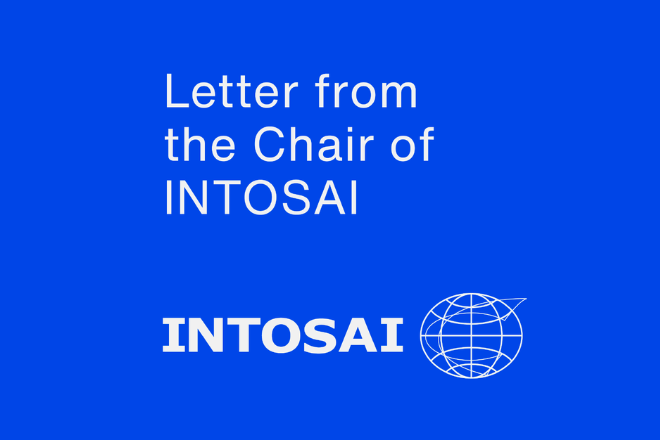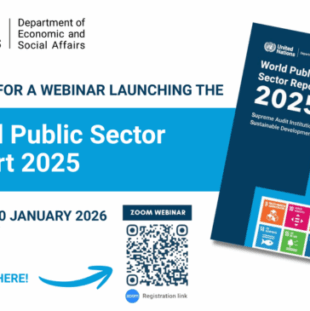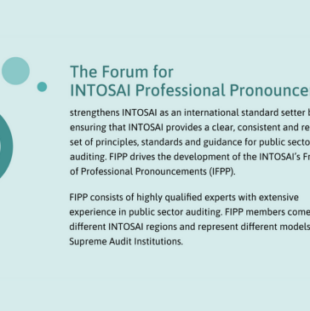Letter from the Chair of INTOSAI: Public-Private Partnerships in Infrastructure

The chair of the International Organization of Supreme Audit Institutions (INTOSAI), Minister Bruno Dantas, in his August 2024 letter, writes about how infrastructure is crucial for economic and social development. It provides the foundation for productive activities and improves quality of life, playing a vital role in collective progress at regional and global levels.

Infrastructure is crucial for economic and social development. It provides the foundation for productive activities and improves quality of life, playing a vital role in collective progress at regional and global levels.
In recent decades, several countries have reduced state intervention in direct infrastructure provision, focusing more on regulating and overseeing public services provided by private capital. This shift is driven by the need to alleviate pressure on public budgets and minimize state debt, transferring part of the costs and risks to the private sector.
In these countries, concessions and public-private partnerships (PPPs) have played a significant role in enabling collaboration between the public and private sectors, combining resources and expertise to make large-scale infrastructure projects viable.
When well planned and executed, these models not only encourage investment and promote efficiency in management and operation but also drive sustainable economic growth, job creation, and the improvement of public services. Additionally, they allow the allocation of scarce government resources to other areas of societal interest.
According to the United Nations Department of Economic and Social Affairs (Third International Conference on Financing for Development, held in 2016), both public and private investment play fundamental roles in financing infrastructure, including the use of public-private partnerships. Furthermore, it is important to build capacities to establish and manage PPPs, ensure the fair distribution of risks and benefits, implement accountability mechanisms, and meet social and environmental standards.
The experience of many countries, including Brazil, reveals that concession and PPP contracts can involve significant fiscal risks, compromising their performance and viability. Failed or stalled projects have the potential to result in direct budgetary consequences, as highlighted by the International Monetary Fund (IMF) in 2018. (1)
Therefore, the external control of Supreme Audit Institutions (SAIs) can play a crucial role in improving privatizations, bringing substantial benefits to society and the development of countries. The work of these institutions, through evidence-based assessments and independent analyses, not only contributes to the maturity and efficiency of projects but also reinforces legal certainty.
Recently, the Working Group on Policy Auditing and Infrastructure Regulation (GTInfra) of the Organization of Latin American and Caribbean Supreme Audit Institutions (OLACEFS) held training on auditing concessions and public-private partnerships in infrastructure from an intersectoral perspective. OLACEFS is chaired by SAI Brazil and includes the Supreme Audit Institutions of Argentina, Chile, Costa Rica, El Salvador, Mexico, Paraguay, and Peru. The group will carry out a cooperative audit in the second half of 2024 to assess the conditions of national governments to enable the provision of public services in complex long-term contracts, within the framework of infrastructure concessions and PPPs.
This year, the Brazilian Federal Court of Accounts published the Reference(2) for the External Control of Concessions and Public-Private Partnerships, a key resource for enhancing Supreme Audit Institution oversight in Brazil and internationally. This document provides guidelines for evaluating projects across five dimensions: strategic, economic, financial, commercial, and managerial. It includes procedures and examples from Brazilian precedents that can help improve the performance and outcomes of public infrastructure policies. The reference is being translated into English and Spanish to make it accessible, by the end of October, to the entire INTOSAI community, thereby extending its reach and global utility.
In addition, OLACEFS has also published the Guía Técnica OLACEFS de Auditoría Externa de APPs y Concesiones(3), which consolidates guidelines for conducting specific external audits for PPP contracts and concessions, adhering to the best international methodologies and practices.
The United Nations (UN) 2030 Agenda includes the construction of resilient infrastructure, the promotion of sustainable industrialization, and the encouragement of innovation among its 17 Sustainable Development Goals (SDGs). It also seeks to establish effective public-private partnerships, leveraging experience in resource mobilization strategies to integrate efforts for sustainable and inclusive development.
Establishing audit procedures for large infrastructure projects in concessions and PPPs, based on international best practices and the experience of various audit institutions, contributes to creating a well-structured regulatory and institutional environment. This is essential for guaranteeing legal certainty and attracting private investment, which in turn improves infrastructure and public services. These efforts align with the goals of the UN 2030 Agenda for Sustainable Development, promoting the quality of life for citizens and the preservation of our planet.
Footnotes:
- Available at https://www.elibrary.imf.org/downloadpdf/journals/002/2018/249/002.2018.issue-249-pt.xml
- Available at https://btcu.apps.tcu.gov.br/api/obterDocumentoPdf/76306499
- Available at https://olacefs.com/gtinfra/document/guia-tecnica-olacefs-de-auditoria-externa-de-apps-y-concesiones/.






